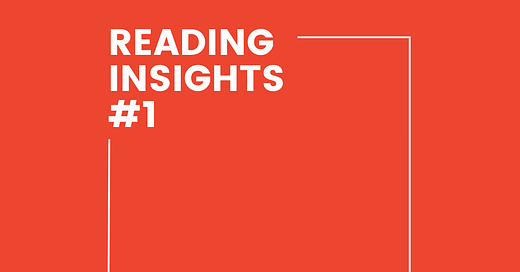Key takeaways for golfers from The Anatomy of Anxiety by Dr. Ellen Vora
Asking The Wrong Questions
Problems that remain persistently insoluble should always be suspected as questions asked in the wrong way. — Alan Watts
If you’re not progressing in a certain part of your game, reconsider your approach.
Prioritize On-Course Breathing Routines
Though today we have the same physiological equipment to cope with stress, we have a very different world to cope with. We encounter chronic, low-grade stressors rather than acute, life-or-death ones…And although these stressors are not as severe as facing a leopard, they still initiate the stress response…So, the body releases stress hormones into your bloodstream, and this invisible chemical cascade manifests as the feelings and sensations of false anxiety.
Tournament golf is stressful.
Poor breathing habits result in the body receiving low-grade stress signals throughout the round.
A comprehensive breathing routine allows you to counteract the stress-inducing experiences golf tournaments throw at you.
Proper breathing raises your body’s stress tolerance threshold.
…as long as you can tip your body into a relaxation response, you are not only avoiding a stress response but also raising the body's threshold for stress. It's as if your nervous system has a zero line, and the more you lift it above that zero line into relaxation territory, the farther you have to travel to dip below zero into a stress response. So, a few minutes of cultivated relaxation can make it less likely that you'll drop into a state of anxiety on any given day.
Incorporating resonance frequency breathing (RFB) into your pre-shot routine is a good starting point. However, I encourage you to use RFB throughout the round to increase your threshold for the unavoidable stress of tournament golf.
Pre-Tournament Sleep Habits
Think of melatonin as money - it's hard to earn and easy to spend. And, essentially, you earn melatonin by being enveloped in authentic, uninterrupted darkness in the evening, which is exactly what most of us are missing in modern life. With one glance at the phone or one flick of the bathroom light switch at night…all your hard-earned melatonin is squandered. To get the circadian rhythm back on track and sleep well in modern life, we need to fix our melatonin by fixing our light cues.
Developing an effective evening routine is crucial for golfers.
It should be cost-effective and convenient.
I’ve been experimenting with the following routine.
60-min before wanting to sleep, I lie in bed with a sleep mask and listen to podcasts.
Here’s what we can learn from our ancestors about deciding our bedtime.
When anthropologists study the last remaining preindustrial hunter-gatherer societies on earth, they consistently find something interesting: these tribespeople tend to go to sleep - around three hours after sunset. (They also, incidentally, do not have an equivalent word in their languages for "insomnia," as it is such a rare occurrence.)
For golfers, the importance of prioritizing and optimizing sleep cannot be overemphasized.
Think of the brain as a little city. The activity in the homes and stores of the brain generates trash, and at the end of the day this trash is piled up in the alleyways. Then, while you sleep, garbage trucks — otherwise known as the lymphatic system — pick up and clear away the bags. If you don't sleep, though, the trash doesn't get picked up. So, the next day, you go about your life with garbage bags piled up in the alleyways of your brain. Your head vaguely hurts, it's hard to think clearly, you're less physically coordinated, and you're moody and anxious.
Lack of sleep sounds like a recipe for disaster.
High-level golf requires the execution of a complex movement skill with a clear mind.
Consistent high-quality sleep doesn’t guarantee low scores, but it sets you up for success.
Jaw Tension
We automatically tense our jaws under stress because, originally, this was a way to signal aggression, strength, and readiness for a brawl…What's more, there's a two-way connection between our jaw and our central nervous system. So, just as stress tells us to clench the jaw, a clenched jaw can communicate back to the brain that we're in a fight, making us feel anxious — and round it goes.
Observe your jaw tension throughout the round.
It is an indicator of the physiological state you find yourself in.
Get Off Work
It's also critical to have a ritual that signals to the brain that you're done with work and it's time to relax. Take a walk; dance in your living room; sip tulsi tea while watching the sunset. It doesn't have to be elaborate, but it should be intentional (i.e., not just zoning out on social media).
We often default to thinking “more” is “better”.
Is “more” practice, or “more” effort really the key to your golfing success?
This mindset can result in excessive time-based practice, at the expense of mental and physical recovery.
In the present day, our thoughts and emotions may seem like the issues causing distress, but the real problem is that our limbic system is stuck in the "on" position. Typically, there's no amount of thinking that can flip that switch off — the only way to release it is through reprogramming the nervous system back to a state of calm. This begins with completing the stress cycle.
We can complete the stress cycle in three ways:
Movement - eg. Exercise
Self-Expression - eg. Singing, journaling, creating art
Connection - eg. Spending time with friends/family
If you are playing a multi-day tournament, it is crucial that you schedule your “Work Hours”. Once you are “Off-work”, ensure you engage in activities that will allow you to complete the stress cycle.



